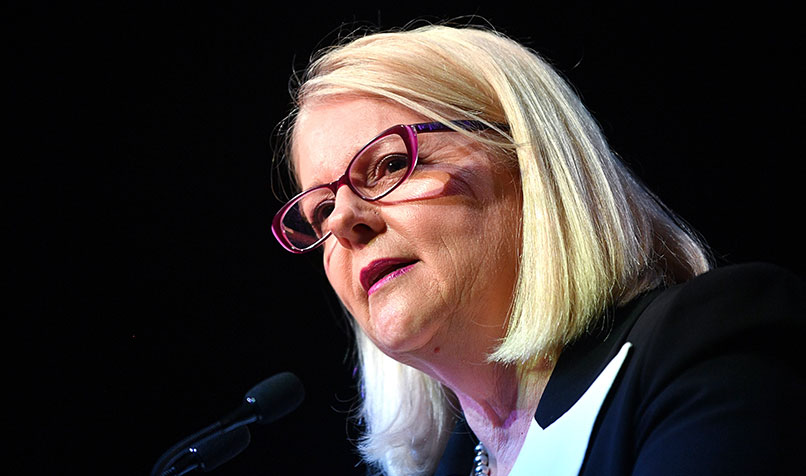Loading component...
At a glance
- The large wave of digital transformation by small businesses has exposed shortcomings in federal and state government funding programs.
- The criticisms levelled at government grants include the amount of effort needed to apply for a grant, the limited availability, and the multiple levels of approval required.
- Accountants and finance professionals have an important part to play in helping to devise a more coherent approach to the process of providing support to SMEs.
By Elizabeth Fry
Large numbers of small and medium-sized businesses (SMEs) have been pushed to the brink this year, against the backdrop of the global health crisis.
Many in the Australian SME community have turned to digital solutions and technology to stay afloat and enable remote work, changing the way they do business almost overnight.
The sudden drive to digitisation and the urgent need for business advice and support have highlighted some glaring shortcomings of the federal and state government funding programs, and underscored the need for a coherent approach in which accounting and finance professionals could – and should – play a key part.
The Australian Government has been looking for new ways to help facilitate digital transformation, in particular for SMEs.
According to the Minister for Industry, Science and Technology, Karen Andrews, companies “are always front and centre of our decision-making when it comes to policy development and reform”.

However, a recently released Australian Information Industry Association (AIIA) report criticises the government’s digital policy, calling it fragmented across a number of departments and lacking in focus.
The AIIA, which advocates for the introduction of a digital minister and an overhaul of tax incentives, has called for a funding boost to support strategically vital areas of the economy and promote entrepreneurialism and national resilience.
Deloitte Access Economics partner, John O’Mahony, says the overlap between the federal, state and local agencies had caused confusion and left SMEs frustrated, because they don’t know what grants are available, or how to access them.
“The accelerating trend towards digitisation has created winners and losers, as certain sectors are running at speed, where others are in the process of being shut down,” O’Mahony says.
He adds that while a recent Deloitte Access Economics survey shows a marked increase in the number of businesses that have advanced levels of digital sophistication, it is “unquestionably the case” that Australia is not as advanced as it should be in digital innovation, and that it lags Asia.
CPA Library resource:
Urgent need for reform
The digitisation gap between Australian SMEs and their Asian counterparts is supported by the findings of CPA Australia’s recent Asia-Pacific Small Business Survey. The survey has also shown that earnings growth is strongly tied to digitisation and innovation, exporting and long-term business strategy.
However, the government support for Australian SMEs to develop capability and capacity in those areas plus financial management is underwhelming, says Gavan Ord, CPA Australia’s manager of business and investment policy.
“This is a critical time for Australia – there will be winners and losers post COVID-19, and digitisation will be the difference,” he says, adding that Australia’s SMEs face major hurdles that prevent them from achieving similar rates of growth as the rest of the Asia-Pacific region.
Many Australian SMEs urgently need access to advisers to help them innovate and grow. “The problem is, many don’t have the capacity or capability to digitally transform their business, so government support is needed to help address these twin concerns,” Ord says.
O’Mahony agrees that, for businesses that are too busy “trying to keep the lights on”, applying for a grant of a few thousand dollars to spend on improving cybersecurity or digitising a process is not going to be the highest priority.
"The government needs to do more. Australia is behind, and even though we are seeing an increase in digital innovation, Australian SMEs are not necessarily doing it well. The rhetoric does not match reality.”
Other criticisms levelled at government grants have been their excessive competitiveness, narrow availability and multiple levels of approval. This is in contrast to broad-based tax incentives, which can be accessed by all companies that qualify.
“The government needs to do more. Australia is behind, and even though we are seeing an increase in digital innovation, Australian SMEs are not necessarily doing it well. The rhetoric does not match reality,” Ord says.

These sentiments are echoed by Simon Bush, AIIA’s general manager of policy and advocacy, who says governments are poor at picking “winners” and choosing where to direct funding. “You need to make sure that you incentivise the right businesses for the future,” Bush says.
Australian Small Business and Family Enterprise Ombudsman, Kate Carnell, says that SMEs have trouble seeing the value of government grants, both literally and figuratively.
“Applying for A$3000 is too much work for too little value,” she says.
Instead of the current system, Carnell would like to see programs reviewed by business people who are focused on where the market is heading.
Stephen Cartwright, CEO of peak business organisation NSW Business Chamber, says feedback from members consistently says that the grant system is highly confusing and difficult to access because of too much red tape. He adds that governments should incentivise new business activities rather than existing ones.
Business advisers can help clear the fog
A critical – but often neglected – aspect of getting government funding into the hands of businesses that need it the most is the delivery channel.
Australian Taxation Office (ATO) research reveals that all up, in 2017 less than 5 per cent of businesses approached the ATO for advice when starting out. In contrast, almost 40 per cent of businesses seek the advice of their accountant.
This puts accountants and finance professionals at a clear advantage to make SMEs aware of the right government grants for their business, and to facilitate the application and grant delivery process, says Ord.
Minister Andrews concedes that trusted advisers, such as accountants and industry associations, are important channels in influencing the decisions that SMEs make. She also agrees that supporting accountants with information and resources will empower them to provide high-quality advice to their clients.
The role of good advice

Carnell would also like to see more resources handed to trusted advisers, given their direct and constant contact with businesses. Like Ord, Carnell believes the problems faced by SMEs are not just about inadequate funding. “SMEs want strategic direction – whether or not their business is viable and how to move forward if it is.”
She has been lobbying the federal government to streamline the vast number of delivery channels and embrace the simpler options of offering business vouchers for advice. Under her proposal, the business could download the voucher, with the business or financial adviser fulfilling the service and claiming back the costs from the government.
Business NSW has long called for grants to pay for financial advice, particularly in the case of natural disasters, where local accountants would have a better knowledge of the specifics of the region and the ability of a business to keep trading.
Ord sees the introduction of some form of government support to encourage businesses to seek professional advice as an essential aspect of business recovery. “Importantly, the outcome of such support is ultimately measurable in new jobs and economic growth,” he says.
“Having access to advice is fundamental to supporting business recovery, and making it more affordable to as many SMEs as possible will go a long way to hastening the economic recovery and setting Australia’s businesses up for the post-pandemic economy.”

